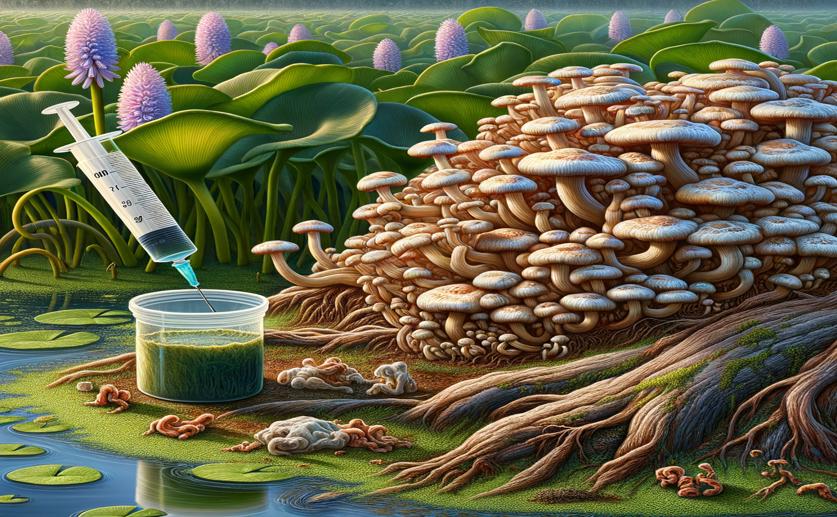
Natural Herbicide from Fungus Extract Shows Promise Against Water Hyacinth
Jim Crocker
23rd August, 2024

Image Source: Natural Science News, 2024
Key Findings
- Researchers from King Mongkut's Institute of Technology Ladkrabang found that a crude extract from Fusarium equiseti can effectively damage water hyacinth
- The extract caused visible damage to water hyacinth leaves, including yellowing and browning, within three days
- The extract reduced photosynthetic pigments and increased cell damage indicators in a dose-dependent manner, suggesting it disrupts plant processes
AgricultureEnvironmentPlant Science
References
Main Study
1) The effect of natural herbicide from Fusarium equiseti crude extract on the aquatic weed water hyacinth (Eichornia crassipes (Mart.) Solms).
Published 22nd August, 2024
Journal: Scientific reports
Issue: Vol 14, Issue 1, Aug 2024
Related Studies
2) Invasive Water Hyacinth: Ecology, Impacts and Prospects for the Rural Economy.
3) Natural herbicide activity of Satureja hortensis L. essential oil nanoemulsion on the seed germination and morphophysiological features of two important weed species.
4) Citronella essential oil-based nanoemulsion as a post-emergence natural herbicide.
5) Allelopathy: an alternative tool for sustainable agriculture.



 2nd August, 2024 | Jenn Hoskins
2nd August, 2024 | Jenn Hoskins